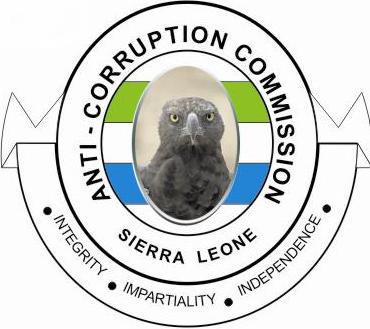The Anti-Corruption Corruption (ACC) has drawn the attention of the Ministry of Gender and Children Affairs (MoGCA) to how corruption is a threat to creating space for women to access power and resources. The Commission sounded the alert in a Customized Meeting with officials of the Ministry at its Field Road office in Makeni on 13th of March, a National Women’s History Month to celebrate and honour the efforts and achievements of women.
Delivering a statement at the meeting, Senior Public Education Officer, Aiah Sourie, gave an overview of milestones the country has achieved since it ratified the Convention on the Elimination of all forms of Discrimination against Women (CEDAW) in 1988.
He cited prominent Rights Groups, like the 50/50 Group established in 2000, which lobbied successfully for 30 per cent female political seats. The Officer further noted that Three Gender Acts were passed between 2007 and 2008 as follows: The Domestic Violence Act, The Devolution of Estate Act, and The Registration of Customary Marriage and Divorce Act.
And in 2022, Mr. Sourie added, Parliament passed the Gender Equality and Women’s Empowerment Act with strong mandates to grant women 30 percent political participation, equal access to pay, financial support, and training opportunities, amongst other things.
While he identified these significant efforts to empower women, the officer pointed out that social and cultural structures still remain unmoved in the way of women’s upward mobility. “To date, women face more challenges to reach opportunities than their male counterparts, who play meaningful roles in decision-making bodies both in the public and private sectors.”
The existing barriers to women’s growth and development are worsened by corruption not least in the public sector, where most women encounter difficulty in accessing reproductive health services, education, training, and justice, for example. Corrupt public officers, the anti-graft officer explained, pressure women to pay bribes even for services they deserve and are entitled to.
In the event women cannot pay bribes, officials sexually extort them and in some instances the women pay bribes in both cash and sex. “The sex part of this kind of corruption is gender-specific, and it is sad to note that female low-income earners are more susceptible to such exploitation than empowered women,” Sourie averred.
He suggested to the MoGCA officials to establish a special anti-corruption desk at the Ministry that would be responsible to look into matters of sexual exploitation of women in public life and work in collaboration with the ACC to seek redress for the victims, adding that the Ministry should also work with and encourage organisations with mandate on the rights of women in the Northern Region.
In his contribution, Ibrahim Bangura, Legal Clerk, ACC, decried extorting women sexually as it is a breach of Sections 42 (Abuse of Office) and 43 (Abuse of Position) of the 2008 Anti-Corruption Act (as amended in 2019). Mr. Bangura warned public officials not to use their offices to abuse women in any form, but they should instead follow due diligence to provide equal opportunities for both men and women. He emphasized: “The Commission is aware that most women so abused shy away from reporting their traumatic experiences mainly out of fear of social stigma and/or the lack of reporting channels. But I encourage this Ministry to help such women understand that any actions that contravene the Anti-Corruption Act 2008 as amended in 2019, shall be punished without favour.”
He named the ACC as a public entity that firmly believes in creating equal opportunities for its staff and encouraged other public bodies to follow suit. For example, Mr. Bangura enlightened his audience revealing that three of the five regional offices of the Commission are managed by women. “The ACC also has female staff members that are in key positions as Directors and Deputy Directors and have excellently performed continuously in the respective duties.”
In response to the anti-graft messages, the Assistant Regional Director of MoGCA, Gassimu Sesay, thanked the ACC for the engagement and confirmed that corruption is a serious menace to women’s empowerment drive. He said, this necessitated the meeting he organized with vulnerable women, farmers and traders to discuss and celebrate the International Women’s Day on March 8. He suggested extending an invitation to the ACC whenever the MoGCA is ready to undertake awareness-raising activities on women issues in communities within the region.




